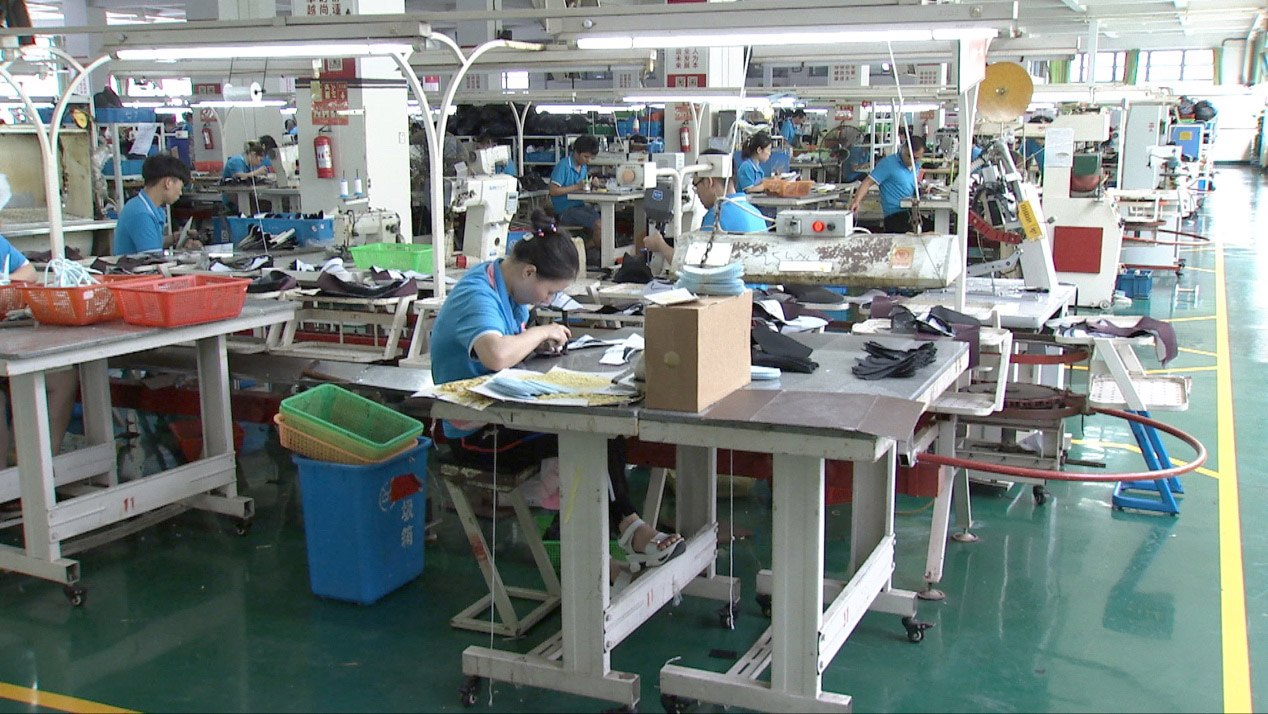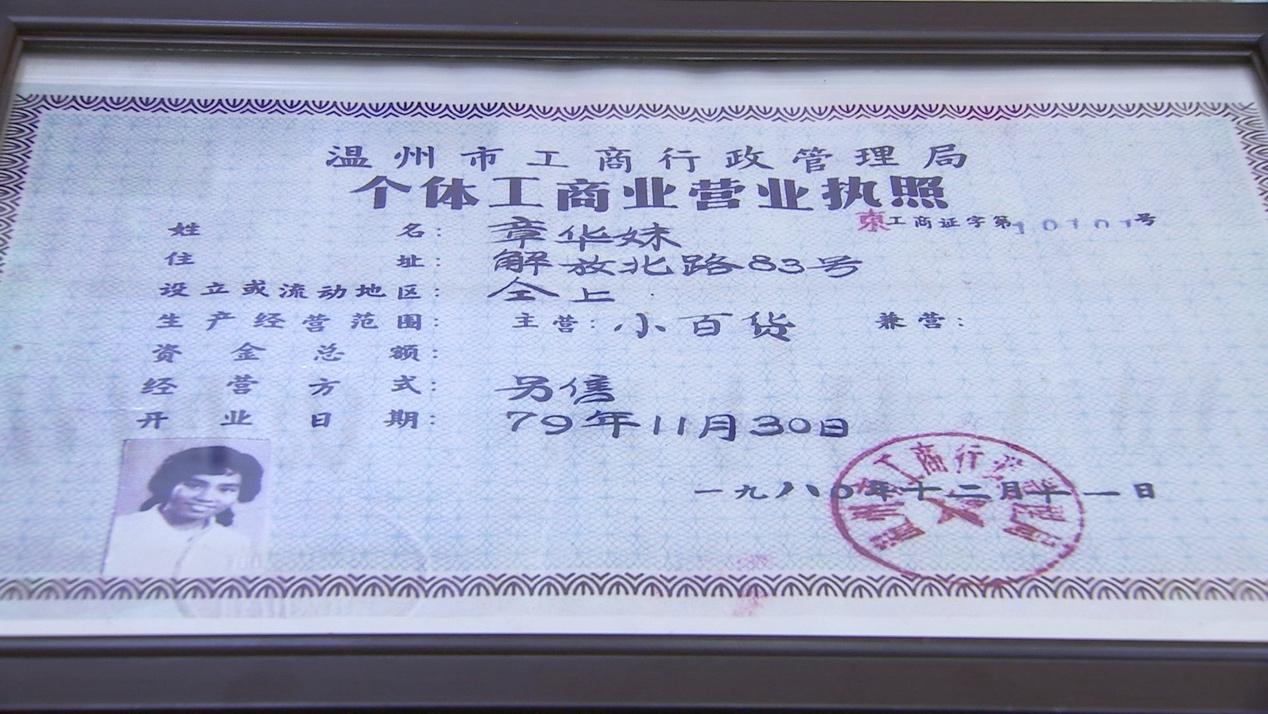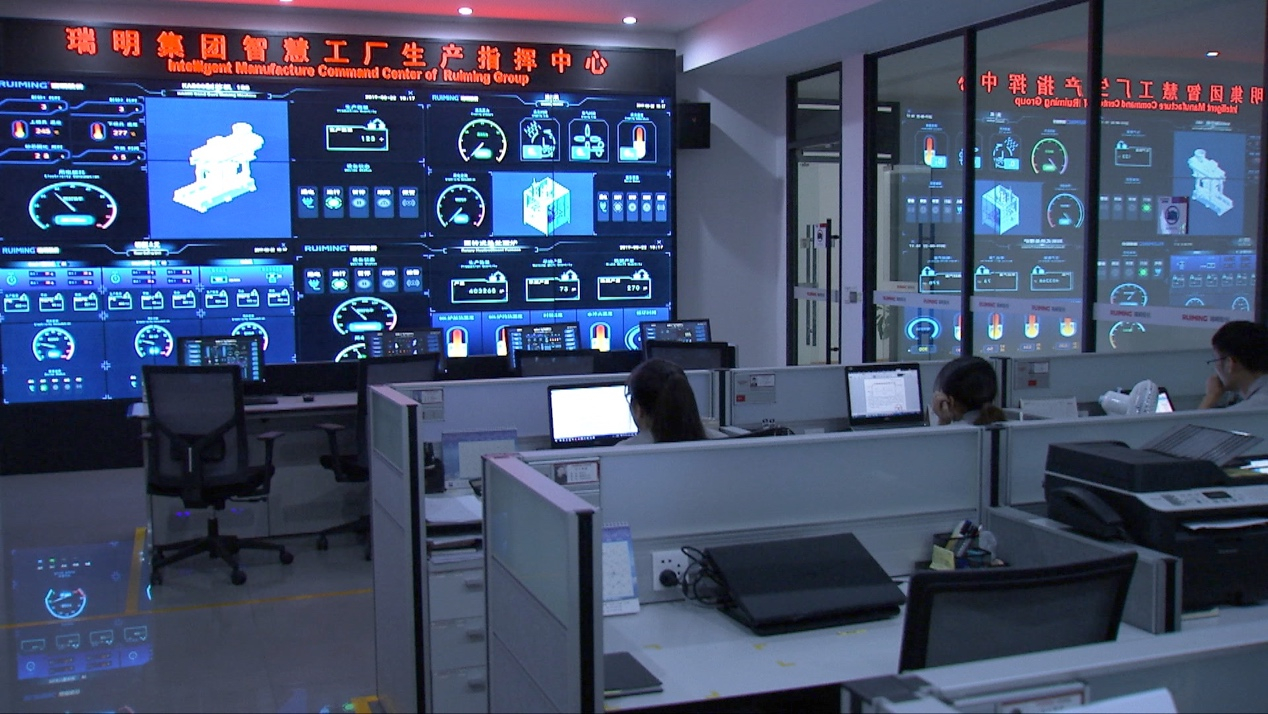

For the first 30 years of the People's Republic of China era, all businesses were state-owned. In 1979 when a growing number of private vendors emerged under the country's reform and opening-up policies, things have changed. Wenzhou City in east China's Zhejiang Province is known as the birthplace of Chinese private entrepreneurship, witnessing the emergence and fast growth of China's private businesses over the decades.
China's first licensed private business vendor
Zhang Huamei, 59, is one of the many private entrepreneurs who started business as a vendor. But what makes Zhang stand out is that she was China’s first private business vendor with an official license, issued back in 1980. This very first business license marked a huge turning point

China's first private business license for Zhang Huamei, 1980. /CGTN photo
Zhang told CGTN that before 1979 it was prohibited for private vendors to do business. But after she got the license, she could legally do businesses with others.
Wenzhou is best known for its private economy
Since then, private businesses have flourished in Wenzhou. People started manufacturing and trading different kinds of goods including clothing, shoes and electrical appliance components.
After years of expansion, Kangnai Group has become one of the largest shoemakers in China.
Zheng Xiukang, Kangnai's president, told CGTN that his son and daughter have taken over his role. He said he will try to help them with their new ideas and concepts, which require more fashionable and personalized designs and marketing strategies.
Right now over 95 percent of businesses in Wenzhou are private, with many having grown into industry leaders. Similar stories are happening across the country. Private enterprises like Geely Group, Huawei and DJI have become world leaders.
Talents and modern management, competitive strengths
With high-quality products and services becoming the new norms, many Chinese private enterprises say that future competition in the global market highlights various factors, including management, talent, core technology, and branding.

Many private entrepreneurs encourage youngsters to study modern management and develop more talents. /CGTN photo
Through years of efforts, Wenzhou Ruiming has become one of the major suppliers of automotive components. Chairman Han Yuming emphasized the importance of learning from global companies.
Han told CGTN that talent is the most important factor for their private companies. All the core workers in his company have followed him for several years and they plan to introduce more domestic and global talents to perfect their management system.
The private sector accounts for more than 60 percent of China's GDP growth and provides over 80 percent of jobs. China's private sector is expected to play a larger role in the country's economic growth.

Copyright © 2018 CGTN. Beijing ICP prepared NO.16065310-3
Copyright © 2018 CGTN. Beijing ICP prepared NO.16065310-3